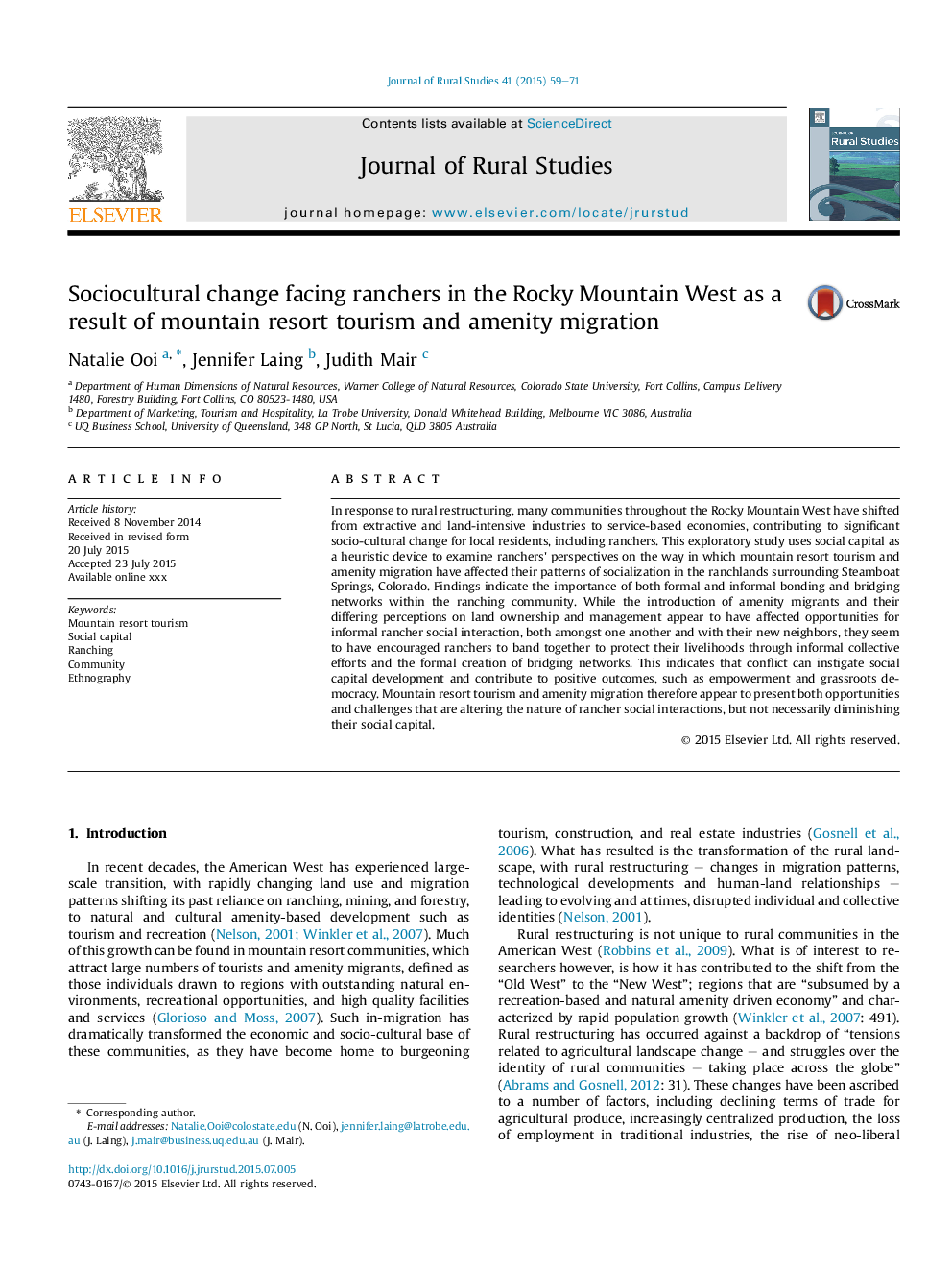| Article ID | Journal | Published Year | Pages | File Type |
|---|---|---|---|---|
| 6545603 | Journal of Rural Studies | 2015 | 13 Pages |
Abstract
In response to rural restructuring, many communities throughout the Rocky Mountain West have shifted from extractive and land-intensive industries to service-based economies, contributing to significant socio-cultural change for local residents, including ranchers. This exploratory study uses social capital as a heuristic device to examine ranchers' perspectives on the way in which mountain resort tourism and amenity migration have affected their patterns of socialization in the ranchlands surrounding Steamboat Springs, Colorado. Findings indicate the importance of both formal and informal bonding and bridging networks within the ranching community. While the introduction of amenity migrants and their differing perceptions on land ownership and management appear to have affected opportunities for informal rancher social interaction, both amongst one another and with their new neighbors, they seem to have encouraged ranchers to band together to protect their livelihoods through informal collective efforts and the formal creation of bridging networks. This indicates that conflict can instigate social capital development and contribute to positive outcomes, such as empowerment and grassroots democracy. Mountain resort tourism and amenity migration therefore appear to present both opportunities and challenges that are altering the nature of rancher social interactions, but not necessarily diminishing their social capital.
Related Topics
Life Sciences
Agricultural and Biological Sciences
Forestry
Authors
Natalie Ooi, Jennifer Laing, Judith Mair,
